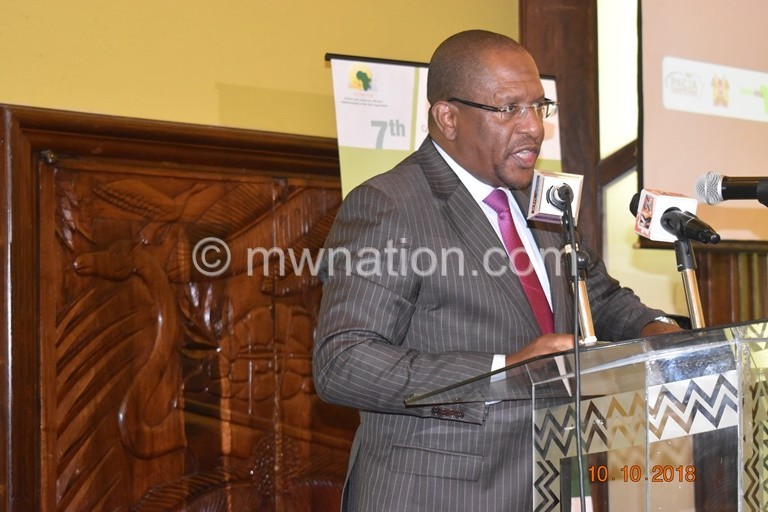‘Deal with climate change or it will deal with you’
Climate Change is real and not fake news. You either deal with it or it will deal with you. This was the key message from Kenya’s Chief Administrative Secretary in the Ministry of Environment and Forestry, Mohammed Elmi when he addressed delegates and participants at the seventh edition of the Climate Change and Development in Africa (CCDA-VII) conference which is underway in Nairobi, Kenya.
The message was also echoed by Kenya’s Cabinet Secretary in the Ministry of Environment and Forestry, Keriako Tobiko, who officially opened the conference on behalf of President Uhuru Kenyatta of Kenya. Tobiko also called for action in climate adaptation, mitigation and measures in creating effective and resilient African economies that would consequently reduce carbon emissions and global warming.

“Climate change is real and it is a matter of life and death and time is not on our side. It is real and an imminent danger to our wellbeing,” Tobiko said.
He further called on African governments to avoid “speaking in tongues” when they go for climate change negotiations but to speak with one voice.
“Africa goes to these conferences as a diverse and disjointed delegation that speaks in tongues. We get lobbied by those who are more organised,” he said.
Tobiko urged African leaders to take a common position on climate change matters because the continent, although it contributes the least to carbon emissions, bears adverse effects of climate change because it lacks capacity to respond to the effects.
He urged stakeholders to take on board indigenous knowledge and communicate the impact of climate change in simpler terms for easy understanding by grassroots.
“Scientific knowledge ignores validity and relevance of indigenous knowledge. We come with extremely complicated and high-sounding terminology. Break them down to the language of the communities. They have their own ways of coping for resilience. Our communities can predict changes in weather. We have elders that can tell from the behaviour of plants and tell [whether] it will rain or not,” he said.
The CCDA-VII conference has coincided with the release of the scientific report by the Intergovernmental Panel on Climate Change (IPCC) which has warned that the world has only under 12 years to reduce global temperatures to 1.5 degrees Celsius or face catastrophic disasters such as extreme weather, heat waves, floods and drought among others.
Africa is one of the continents that the report says will be greatly impacted if no rapid, urgent and unprecedented action is taken to limit global warming.
The African Development Bank’s Chief Climate Policy Officer, James Kinyangi said between 2015 and 2017, 108 million people were affected by floods and that US$22 billion was lost because of that.
Delegates to the CCDA-VII, which is expected to end on 12 October 2018, will among several other issues, deliberate on some of the key outcomes of the Paris Agreement adopted in 2015 at the 21st Conference of Parties to the United Nations Framework Convention Climate Change (UNFCCC).
The key question that delegates are expected to explore and find answers to is on whether the Paris Agreement in its present form is able to achieve its ambitions such as reducing global temperatures to well below 2 degrees celcius above pre-industrial levels.





